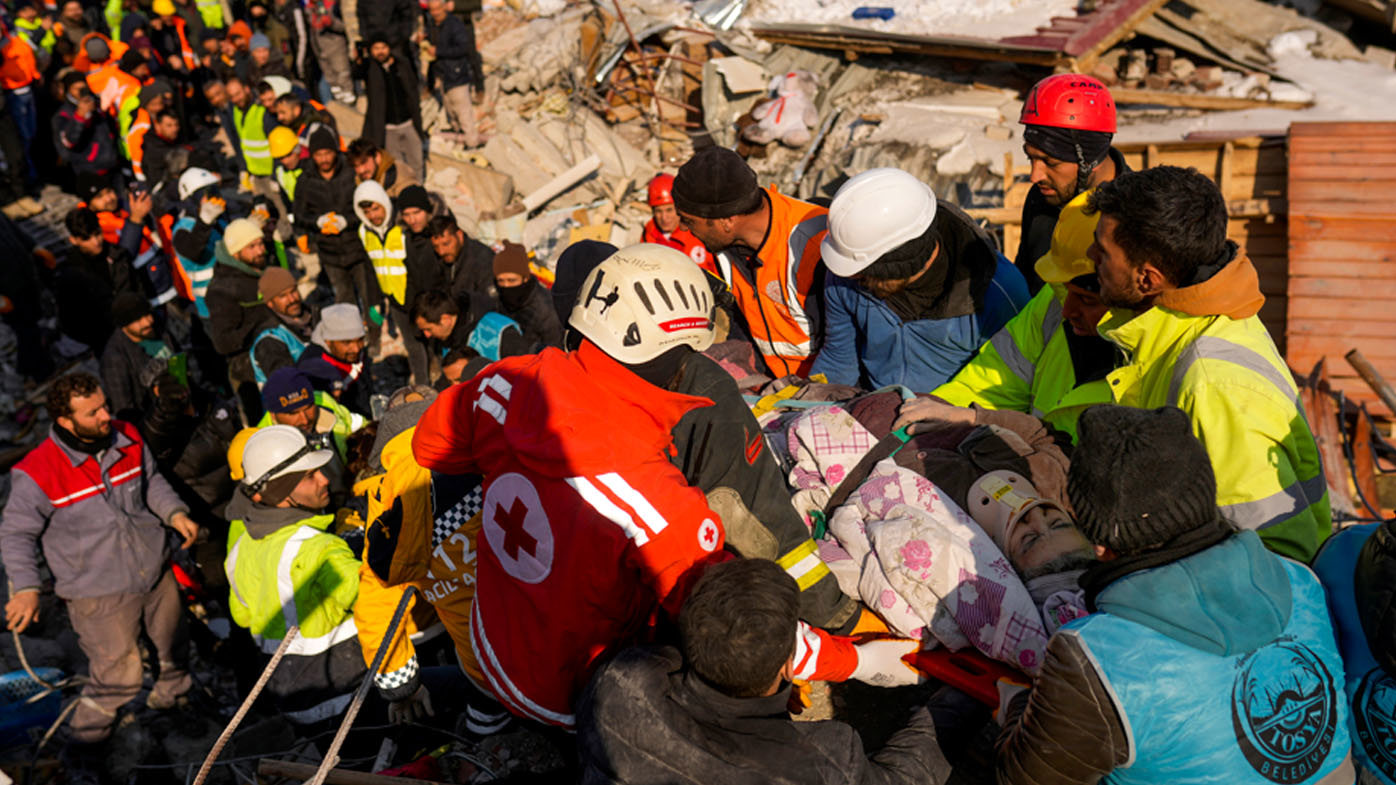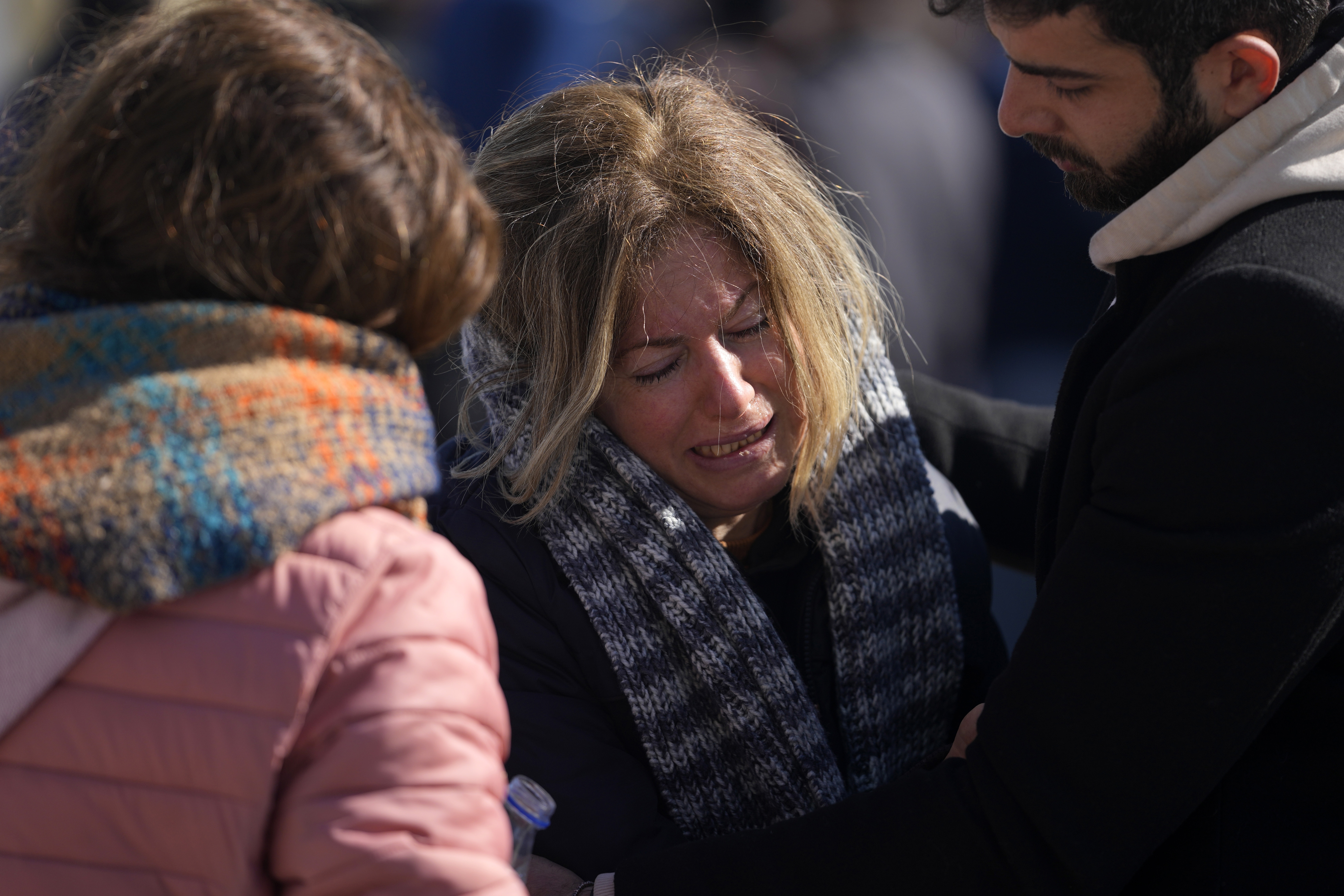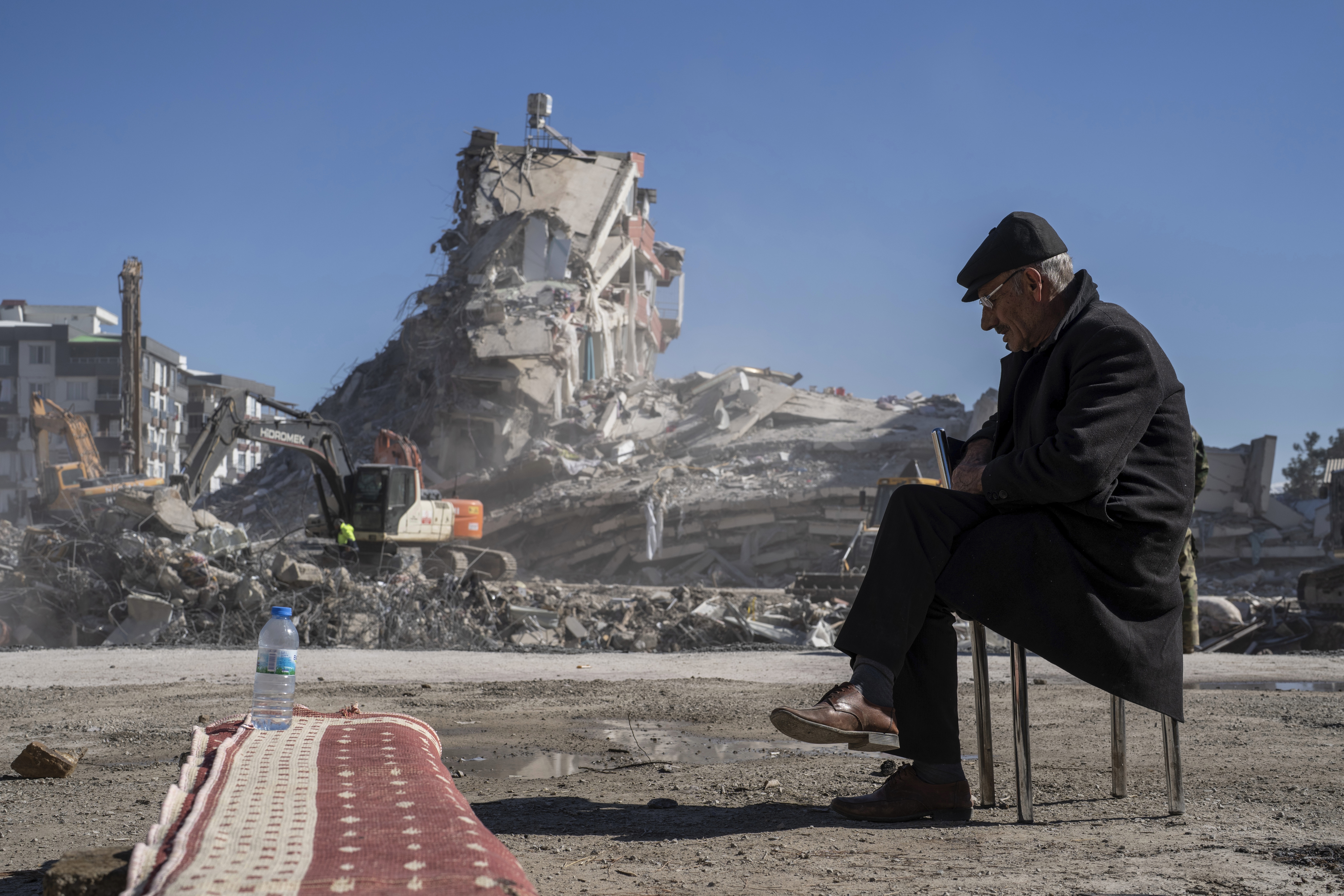Rescuers have pulled more survivors from beneath collapsed buildings, but hopes were starting to fade of finding many more people alive over three days after a catastrophic earthquake and series of aftershocks hit Turkey and Syria, killing more than 20,000 people.
The quake that razed thousands of buildings was one of the deadliest worldwide in more than a decade. The deaths have surpassed the toll from a 2011 earthquake off Fukushima, Japan, that triggered a tsunami, killing more than 18,400.
While some survivors were still being rescued across the region, some family members of those buried in the rubble have begun to lose hope after waiting for days.
READ MORE: Melbourne Turkish community secures charter flight to send donations to earthquake disaster zones
Meanwhile, Australian search and rescue experts are set to depart on Friday for the earthquake impact zones as part of a giant international aid effort.
Australia is sending 72 personnel and 22 tonnes of equipment including first aid supplies, tools, cameras, and sub-ground listening equipment to allow them to search for any possible survivors.
They are scheduled to fly out from RAAF base Richmond in New South Wales at 9am.
The NSW government has also confirmed it will provide an additional $1 million to this search and rescue mission.
The federal government confirmed yesterday the first Australian had been killed in the earthquake.
Can Pahali, who had been living in Glebe in Sydney, was holidaying in the province of Hatay when the two quakes struck the region on Monday.
A relative who flew across from Germany found Pahali's body among the rubble and retrieved it.
The Department of Foreign Affairs and Trade said three other Australians remain unaccounted for.
Emergency crews used pick axes, shovels and jackhammers to dig through twisted metal and concrete — and occasionally still pulled survivors out.
But in some places, they switched the focus to demolishing unsteady buildings.
While stories of miraculous rescues briefly buoyed spirits, the grim reality of the hardship facing tens of thousands who survived the disaster cast a pall.
In north-west Syria, the first UN aid trucks to enter the rebel-controlled area from Turkey since the quake arrived — underscoring the difficulty of getting help to people in the country riven by civil war.
In the Turkish city of Antakya, meanwhile, dozens of people scrambled for aid in front of a truck distributing children's coats and other supplies.
One survivor, Ahmet Tokgoz, called for the government to evacuate people from the devastated region. While many of the tens of thousands who have lost their homes have found shelter in tents, stadiums and other temporary accommodation, others have spent the nights outdoors.
READ MORE: Social media 'fight club' puts South Australian community on edge
"Especially in this cold, it is not possible to live here," he said. "If people haven't died from being stuck under the rubble, they'll die from the cold."
Winter weather and damage to roads and airports have hampered the response in both Turkey and Syria, where a civil war that displaced millions has further complicated efforts.
Some in Turkey have complained the response was too slow — a perception that could hurt President Recep Tayyip Erdogan at a time when he faces a tough battle for reelection in May.
In the Turkish town of Elbistan, rescuers stood atop a high stack of rubble from a collapsed home and fished out an elderly woman who had been submerged.
Teams urged quiet in the hopes of hearing stifled pleas for help, and the Syrian paramedic group in the rebel-held northwest known as White Helmets noted that "every second could mean saving a life."
READ MORE: Man jailed for 'savage and cowardly' murder of stranger
But more and more often, the teams pulled out dead bodies from under the rubble. In Turkey's Antakya, over 100 bodies, covered by blankets and awaiting identification, lay in a makeshift morgue outside a hospital and in refrigerated trucks.
With the chances of finding people alive in the rubble dwindling, teams in some places began demolishing buildings. In others, they simply had to move on.
In Adiyaman, Associated Press journalists saw a local resident plead with rescuers to come and sift through the rubble of a building where relatives were trapped. The crew refused, saying there was no one alive there, and they had to prioritize areas where there may be survivors.
READ MORE: Severe thunderstorm barrels through NSW south coast
A man, who gave only his name as Ahmet out of fear of government retribution, later spoke to the AP.
"How can I go home and sleep? My brother is there. He may still be alive," he asked.
In Nurdagi, throngs of onlookers — mostly family members of people trapped inside — watched as heavy machines ripped at one building that had collapsed, its six floors pancaked together.
Mehmet Yilmaz watched from a distance, estimating that around 80 people were still beneath the rubble — but that it was unlikely any would be recovered alive.
"There's no hope," said Yilmaz, 67, who had six relatives, including a three-month-old baby, trapped inside.
"We can't give up our hope in God, but they entered the building with listening devices and dogs and there was nothing."
Authorities called off search-and-rescue operations on Thursday in the cities of Kilis and Sanliurfa, where destruction was not as severe as in other impacted regions.
Across the border in war-riven Syria, assistance trickled in. Smaller aid organisations have sent in shipments to Syria's rebel-held north-west, but the first UN trucks arrived on Thursday.
The U.N. is only authorised to deliver aid through one border crossing and road damage has prevented that thus far.
UN officials said more was needed, and they pleaded for humanitarian concerns to take precedence over politics.
The scale of loss and suffering to tend to remained massive. Turkish authorities said Thursday that the death toll had risen to more than 16,100 in the country, with more than 64,000 injured. On the Syrian side, which includes in government-held and rebel-held areas, of the border, more than 3100 have been reported dead and more than 5000 injured.
It was not clear how many people were still unaccounted for in both countries.
Among the missing were members of a high-school volleyball team from northern Cyprus, as well as teachers and parents who had been staying in a hotel that collapsed, said Nazim Cavusoglu, the education minister in the breakaway Turkish Cypriot north, on Turkey's NTV television.
Turkey's disaster management agency said more than 110,000 rescue personnel were now taking part in the effort and more than 5,500 vehicles, including tractors, cranes, bulldozers and excavators had been shipped. Teams from places as diverse as Poland, Switzerland, Israel and the West Bank were contributing to the deployment to Turkey.
But international aid for Syria was far more sparse, where efforts have been hampered by the ongoing war and the isolation of the rebel-held region along the border that is surrounded by Russia-backed government forces. Syria itself is an international pariah under Western sanctions linked to the war.
Erdogan, who continued touring devastated areas Thursday, has sought to deflect criticism of the response — and vowed it was improving.
He renewed a promise to quake survivors that destroyed homes would be rebuilt within a year. He has said the government will distribute 10,000 Turkish lira ($760) to affected families.
Sign up here to receive our daily newsletters and breaking news alerts, sent straight to your inbox.
Source: 9News








